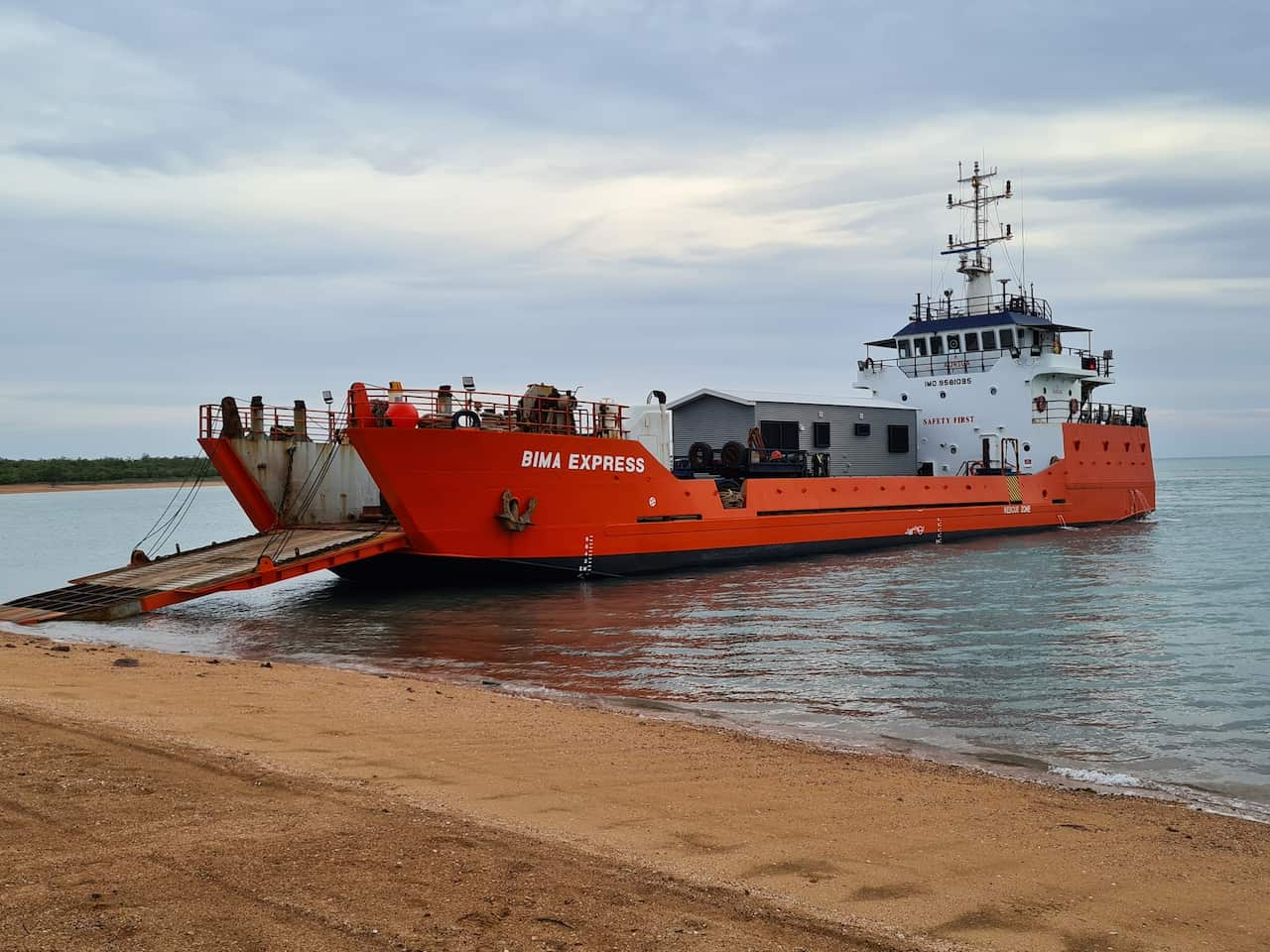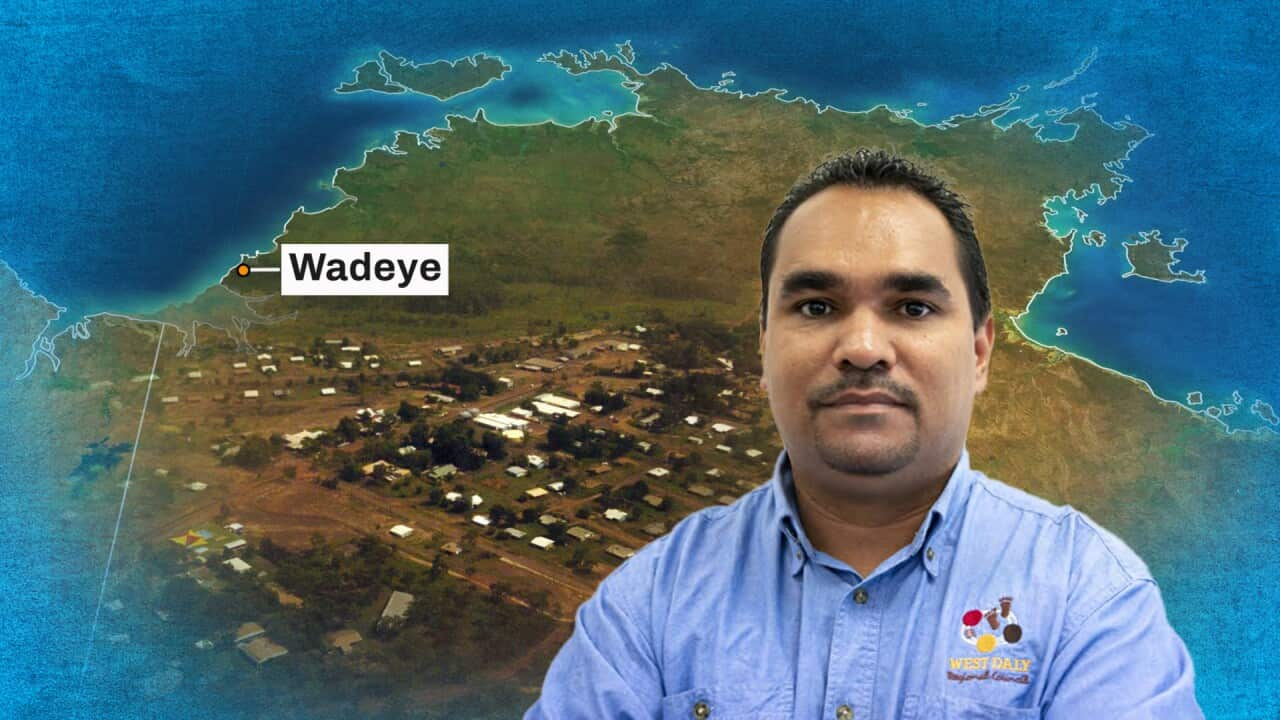Hundreds of Wadeye residents may be forced to leave their community this wet season following the closure of the region’s only barge service.
Local leaders say its closure will leave the community without a critical supply lifeline.
“Without the barge, families will be forced to migrate to Darwin and other centres simply to access food and basic supplies," Thamarrurr Development Corporation Chairman Mark Tunmuck said.
"This is not a choice - it is survival,” he said.
Wadeye, located around 400 kilometres southwest of Darwin, is the Northern Territory's largest remote Indigenous community, home to around 2000 residents according to the latest census data.
The barge is the sole means of delivering food and essential goods to Wadeye when road access is cut off for around four to six months a year during the wet season.

'Avoidable humanitarian crisis'
Since 2020, the Murin Association has managed the Wadeye barge freight service.
In a statment Murin Association President, William Parmbuk, confirmed the service concluded on 1 September following a decision by their subcontracted operator to pull out of the West Daly region.
“We know this decision will affect local businesses and raise concerns about food security in Wadeye," Mr Parmbuk said.
"Barge freight in remote areas depends on a very limited market."

Murin Association CEO David Boustead said the company had approached NT and federal governments to help subsidise the increased cost of running the service.
The only alternative would see a 70 per cent increase in costs that Mr Boustead said could not be absorbed soley by Murin, and which they also do not want to pass on to community.
Mr Boustead said he was told by the NT government that "no current funding programs are available to offset the costs of continuing the service."
This is an essential service, not a luxury.Mark Tunmuck, Thamarrurr Development Corporation Chairman
Local leaders are warning the Northern Territory Government’s refusal to subsidise the service on a short term basis risks triggering an avoidable humanitarian crisis.
"Allowing it to collapse will displace hundreds of people, increase itinerant populations in urban centres, and strip Wadeye of its already fragile stability,” Mr Tunmuck said.
Governments' response
NT Minister for Aboriginal Affairs Steve Edgington has since put out a call for expressions of interest to find a new operator.
Mr Edgington said arrangements have been made to transport essential food and goods by road for the next 12 weeks.
"All major customers of the barge, including Wadeye’s community store, have locked in road transport for their freight requirements for the next 12 weeks,” Mr Edgington said.
“In the meantime, we welcome expressions of interest to offer reliable barge services to Wadeye and surrounding communities.”
Mr Edgington said he has also written to the Federal Government to highlight shared responsibilities.
"The Territory Government would welcome additional Commonwealth support to resolve this situation to ensure food and fuel security for the people of Wadeye and the broader West Daly region," he said.
The federal Minister for Indigenous Australians Malarndirri McCarthy holds direct responsibility for the National Indigenous Australians Agency (NIAA).
Minister McCarthy told NITV the NIAA are working closley with the NT Government and relevant stakeholders to find a "commercial solution" to ensure "the regular delivery of essential goods to Wadeye".
"The National Indigenous Australians Agency is in regular contact with representatives from the Wadeye community," Minister McCarthy said.
Expressions of interest are now open for a new barge operator and will close on September 15.

